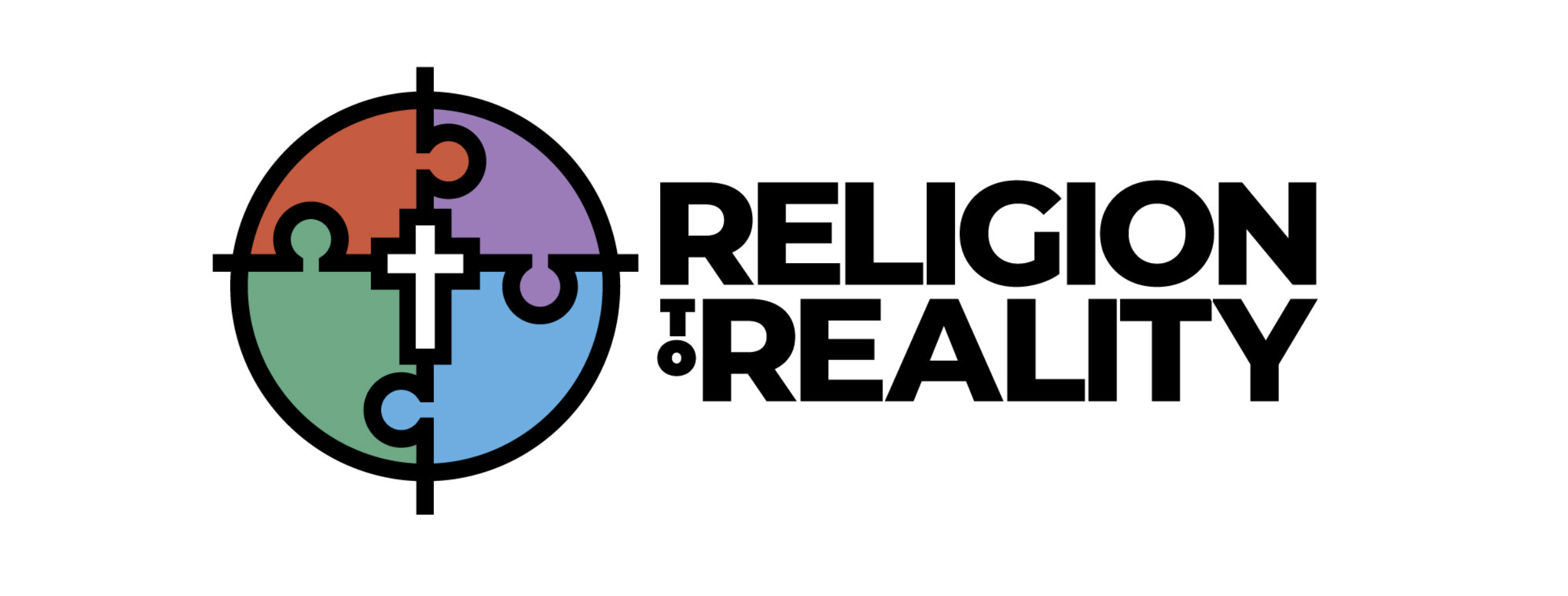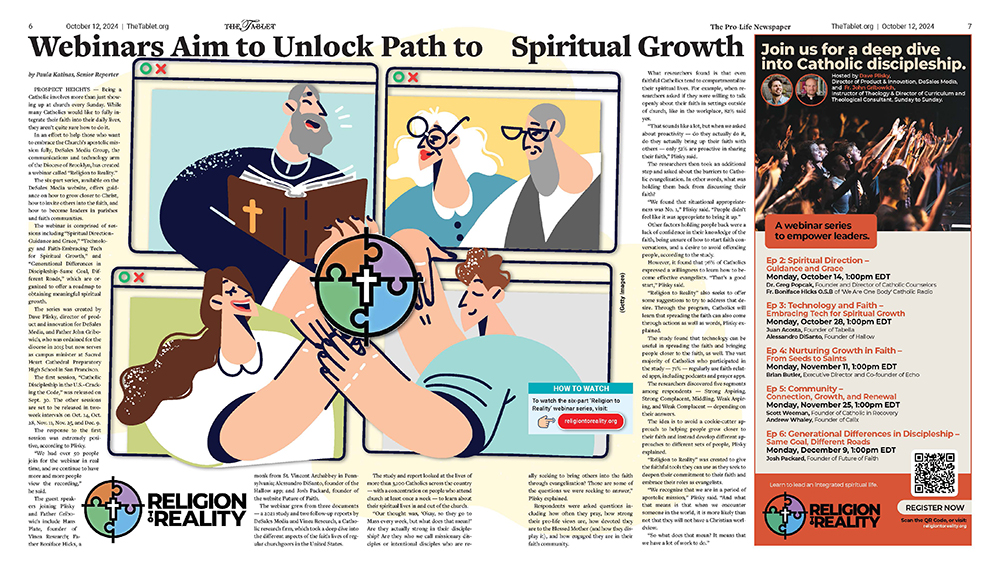PROSPECT HEIGHTS — Being a Catholic involves more than just showing up at church every Sunday. While many Catholics would like to fully integrate their faith into their daily lives, they aren’t quite sure how to do it.
In an effort to help those who want to embrace the Church’s apostolic mission fully, DeSales Media Group, the communications and technology arm of the Diocese of Brooklyn, has created a webinar called “Religion to Reality.”
The six-part series, available on the DeSales Media website, offers guidance on how to grow closer to Christ, how to invite others into the faith, and how to become leaders in parishes and faith communities.
The webinar is comprised of sessions including “Spiritual Direction– Guidance and Grace,” “Technology and Faith-Embracing Tech for Spiritual Growth,” and “Generational Differences in Discipleship–Same Goal, Different Roads,” which are organized to offer a roadmap to obtaining meaningful spiritual growth.
The series was created by Dave Plisky, director of product and innovation for DeSales Media, and Father John Gribowich, who was ordained for the diocese in 2015 but now serves as campus minister at Sacred Heart Cathedral Preparatory High School in San Francisco.
The first session, “Catholic Discipleship in the U.S.–Cracking the Code,” was released on Sept. 30. The other sessions are set to be released in two-week intervals on Oct. 14, Oct. 28, Nov. 11, Nov. 25, and Dec. 9.
The response to the first session was extremely positive, according to Plisky.
“We had over 50 people join for the webinar in real time, and we continue to have more and more people view the recording,” he said.
The guest speakers joining Plisky and Father Gribowich include Hans Plate, founder of Vinea Research; Father Boniface Hicks, a monk from St. Vincent Archabbey in Pennsylvania; Alessandro DiSanto, founder of the Hallow app; and Josh Packard, founder of the website Future of Faith.
The webinar grew from three documents — a 2021 study and two follow-up reports by DeSales Media and Vinea Research, a Catholic research firm, which took a deep dive into the different aspects of the faith lives of regular churchgoers in the United States.
The study and report looked at the lives of more than 3,100 Catholics across the country — with a concentration on people who attend church at least once a week — to learn about their spiritual lives in and out of the church.
“Our thought was, ‘Okay, so they go to Mass every week, but what does that mean?’ Are they actually strong in their discipleship? Are they who we call missionary disciples or intentional disciples who are really seeking to bring others into the faith through evangelization? Those are some of the questions we were seeking to answer,” Plisky explained.
Respondents were asked questions including how often they pray, how strong their pro-life views are, how devoted they are to the Blessed Mother (and how they display it), and how engaged they are in their faith community.
What researchers found is that even faithful Catholics tend to compartmentalize their spiritual lives. For example, when researchers asked if they were willing to talk openly about their faith in settings outside of church, like in the workplace, 82% said yes.
“That sounds like a lot, but when we asked about proactivity — do they actually do it, do they actually bring up their faith with others — only 52% are proactive in sharing their faith,” Plisky said.
The researchers then took an additional step and asked about the barriers to Catholic evangelization. In other words, what was holding them back from discussing their faith?
“We found that situational appropriateness was No. 1,” Plisky said. “People didn’t feel like it was appropriate to bring it up.”
Other factors holding people back were a lack of confidence in their knowledge of the faith, being unsure of how to start faith conversations, and a desire to avoid offending people, according to the study.
However, it found that 76% of Catholics expressed a willingness to learn how to become effective evangelists. “That’s a good start,” Plisky said.
“Religion to Reality” also seeks to offer some suggestions to try to address that desire. Through the program, Catholics will learn that spreading the faith can also come through actions as well as words, Plisky explained.
The study found that technology can be useful in spreading the faith and bringing people closer to the faith, as well. The vast majority of Catholics who participated in the study — 71% — regularly use faith-related apps, including podcasts and prayer apps.
The researchers discovered five segments among respondents — Strong Aspiring, Strong Complacent, Middling, Weak Aspiring, and Weak Complacent — depending on their answers.
The idea is to avoid a cookie-cutter approach to helping people grow closer to their faith and instead develop different approaches to different sets of people, Plisky explained.
“Religion to Reality” was created to give the faithful tools they can use as they seek to deepen their commitment to their faith and embrace their roles as evangelists.
“We recognize that we are in a period of apostolic mission,” Plisky said. “And what that means is that when we encounter someone in the world, it is more likely than not that they will not have a Christian worldview.
“So what does that mean? It means that we have a lot of work to do.”
To join the six-Part ‘Religion to Reality’ webinar series, visit: Religiontoreality.org


